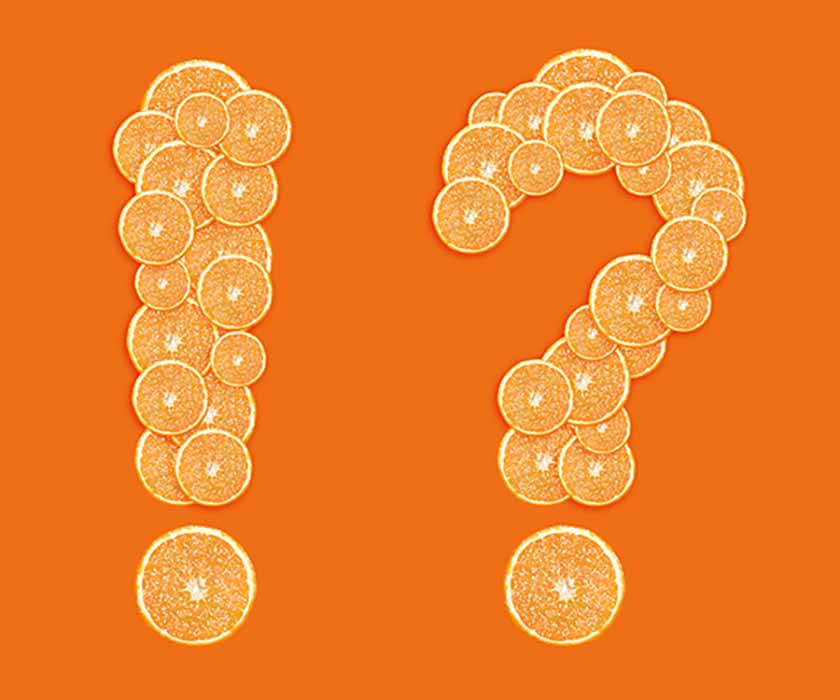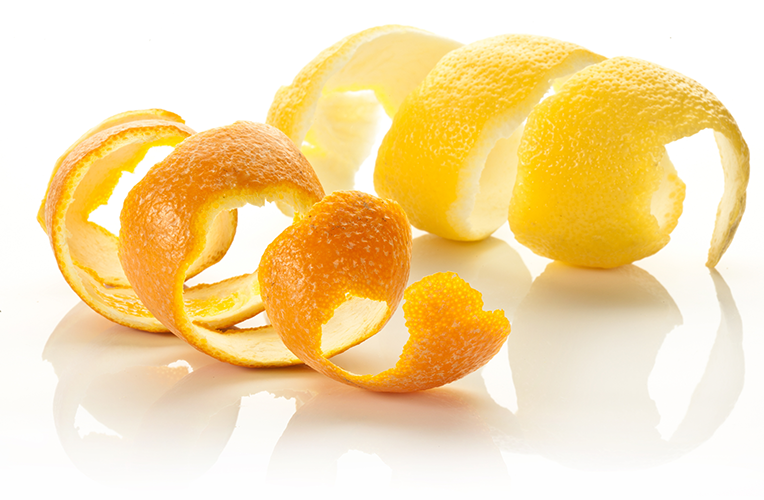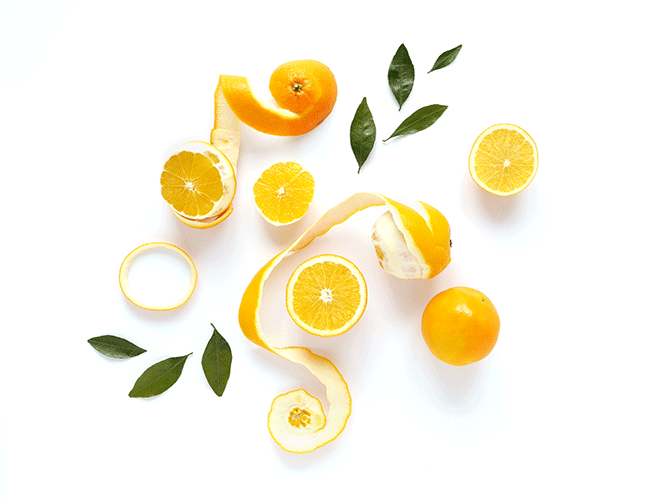Citrus Fiber Powder: Top FAQ in 2024
Citrus fiber is a natural food ingredient used to improve nutrition, texture and stability of food and beverages. Despite its global use and increased awareness, the food industry continues to ask questions about this ingredient due to its sustainable halo. A recent keyword analysis revealed a few of the top-line questions involving citrus fiber's benefits, its natural status and gluten-free positioning.
Surprise! The Internet is exploding with information about the newest ingredient on the block -- citrus fiber. Also known as, citrus fibre, orange fiber, orange fruit fiber, citrus fiber powder, fibre de citrus, citrus fruit extract, the list goes on. For decades, the food and beverage industry created products with a variety of ingredients ranging from commodity (e.g. flour, sugar, salt) to specialty (e.g. pectin, carrageenan, gellan gum and other hydrocolloids). But thanks to sourcing efficiencies, new processing technology and evolving consumer trends, food ingredients like citrus fiber are abundantly available to improve the nutrition, texture and stability of food products.
Despite its global use and increased awareness, the market continues to probe for more information. In the 2024 recent keyword analysis, several questions surfaced. Below lists the top five questions pertaining to citrus fiber. Let’s take a moment to expand on the topic further.
-
What is citrus fiber powder and why use it?
Citrus fiber is a food ingredient produced from citrus fruit such as lemons, limes and oranges. However, not all citrus fibers are created the same. Citrus fiber differs by botanical source, processing conditions and composition. Fiberstar, Inc., a citrus fiber supplier, uses the byproduct from the citrus juicing industry to make a sustainable and upcycled fiber called Citri-Fi®. The composition of insoluble and soluble fiber, in the form of native intact pectin, provides the high water holding and emulsification properties which benefit a variety of food and beverages.
Other similar ingredients tend to be byproduct of the pectin extraction process which typically uses chemicals (usually acid) and solvents. Because of this, these citrus fibers likely lose some of its functionality causing some producers to add pectin back into the citrus fiber mix to increase its advantage.
Citri-Fi citrus fiber usage rate ranges from 0.5% to 1.0% in a variety of foods including:
- Baking: moisture retention, improved freshness over time, replacement of eggs
- Gluten-free bakery: moisture retention, emulsifier, improves freshness over time
- Beverages: improved mouthfeel, stabilizer, pulp enhancer
- Dairy: syneresis control, stabilizer, creamy mouthfeel
- Dairy alternatives: creamy mouthfeel, stabilizer, syneresis control, gellan gum replacement
- Dressing & sauces: emulsification, improved texture, stability
- Dry plating: converting liquids to flowable powders
- Meat substitutes: emulsification, binding, firmness, meat-like texture
- Processed meats: improved yields, succulence, phosphate replacement
- Pet foods: emulsifier, stabilizer, texturizing
-
What are the benefits of using citrus fiber powder?
Citri-Fi citrus fiber provides both water holding and emulsification properties. Additionally, it gels due to its high level of intact native pectin. These functionalities mirror other hydrocolloids in the market. As a result, this upcycled food ingredient can be used to improve nutrition, texture, stability and labeling of food and beverages. Labeling options include citrus fiber, dried citrus pulp or citrus flour which resonate well in the natural and clean label markets.
Citrus fiber has no E-number which is key in regions like Europe. Many food formulators avoid using E-number ingredients. Citri-Fi is also non-allergenic and gluten-free making it an ideal ingredient to use in gluten-free formulating. This natural citrus fiber is non-GMO project certified. And the Citri-Fi 400 line is USDA certified organic which makes it a one-of-a-kind in the market.
Because this citrus fiber is produced from byproduct of the citrus juicing industry, it is considered upcycled, sustainable and eco-friendly. And like its name infers, this ingredient does contribute dietary fiber (>80%).
-
Is citrus fiber an ultra-processed food (UPF)?
Ultra-processed foods or UPFs entered the limelight recently due to their health implications. These types of industrial made foods typically use ingredients that have been synthesized in laboratories, derived from food components or extracted from foods. Though citrus fiber is extracted from citrus fruit, it is not considered an ultra-processed food.
Since citrus fiber is not a finished product, consumers do not eat it by itself. On the other hand, UPFs are finished food products consumed by the general population. UPFs typically incorporate ingredients like saturated or hydrogenated fats, salt, refined sugars or flours and artificial colors, flavors and preservatives.
-
Is citrus fiber a food additive?
The United States, Europe and other countries' governing bodies manage their own definitions of food additives. Citrus fiber does not qualify as a food additive in the U.S. or Europe. It is a considered an ingredient in both the US and Europe which lands out of the scope of the food additive list. Because of this, citrus fiber has no E-number in Europe which makes it an ideal natural food ingredient to use to benefit food and beverages like baked goods, juices, snacks, sauces, meat substitutes, plant-based beverages, dairy-free cheeses and more.
-
Is citrus fiber gluten-free?
Gluten-free requires testing and monitoring. Naturally, citrus fiber contains no gluten. However, some citrus fibers are processed using equipment that may have been contaminated from gluten-containing foods. Therefore, it is important for the citrus fiber suppliers to guarantee that their citrus fiber is gluten-free. Citri-Fi citrus fiber falls under the threshold. As a result, it is safe for gluten-free formulator to use in food products.




